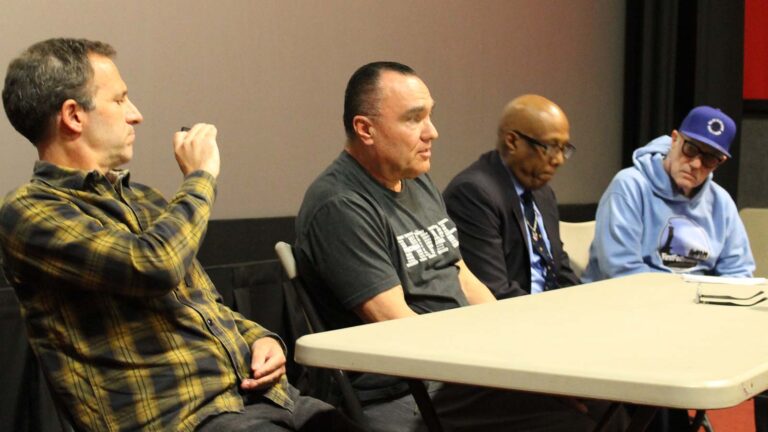SAVOY — Ronnie Carrasquillo was among the last sentenced before the state ended parole in 1978. Unlike everyone convicted since then, he’s had the chance to ask the parole board to release him early.
Instead, he was denied parole over 30 times. Year after year, the Illinois Prisoner Review Board debated his actions at age 18, when he shot at a fighting crowd from over a block away and killed a plainclothes police officer.
“I’m the oldest 18-year-old you know. I can’t get out of being 18,” Carrasquillo used to say.
Carrasquillo visited Savoy last week for a screening of the documentary about him, “In Their Hands.” He was released at age 65, not by the parole board but by a judge.
“In Their Hands” filmmaker Dan Protess said the old parole system has two major problems. Those appointed to the board in recent years “could care less about rehabilitation and will continue to see 65-year-olds as their 18-year-old selves,” he said.
The other problem is legislative.
“If they have decided they don’t want to give Ronnie a shot, the law has given them plenty of ways to say, ‘We’re not going to give him a shot’,” Protess said.
Parole bill shifts focus to recent actions of the incarcerated
The Illinois General Assembly is considering a bill written by a group of incarcerated men that would reestablish parole in the state.
In addition to restarting parole for most people in prison, House Bill 2764 describes what the Prisoner Review Board should focus on: a statement by the candidate for parole, character references, participation in programs in prison, and evidence of the likelihood that the person will return to prison.
“We’re trying to provide ways that will encourage the board to look at who the person is that’s currently before them,” said Raúl Dorado, who helped craft the bill.
The bill still allows the board to consider criminal history.
“Looking at the nature of the case should be one thing, yes, but it should not be the sole basis for granting or denying,” Dorado said.
Carrasquillo’s life after prison
“In Their Hands” ends with a scene of Carrasquillo eating with his family for the first time in 47 years. He talks about watching how they hold their forks and who eats their food with too much ketchup.
Since then, Carrasquillo has been touring with Protess to talk about the documentary and doing other talks and interviews to raise awareness about the prison system. He visited Savoy in April for a screening of “In Their Hands” hosted by the nonprofit FirstFollowers and the Education Justice Project at the University of Illinois.
Carrasquillo has also spent time in his sister’s garden, one of his goals while incarcerated. He says it’s a reminder that he is out of the community violence of his youth and out of prison.
“It’s over. Nobody’s chasing me. Nobody’s after me. It’s just like, God, finally it’s done,” Carrasquillo said.

